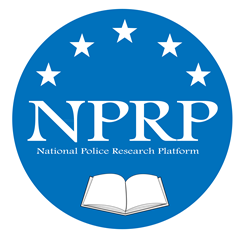The National Police Research Platform: Where It All Began
In 2009, a team of leading police researchers and police executives, with support from the National Institute of Justice (Office of Justice Programs, U.S. Department of Justice) developed a new, more productive and efficient way to learn about policing in the United States. This initiative, called the National Police Research Platform, was implemented in selected jurisdictions around the country that agreed to participate in one or more pilot test phases of the project. The project was headquartered at the University of Illinois at Chicago under the leadership of Dr. Dennis Rosenbaum, and involved a consortium of leading police researchers at other major universities. (See Original Research Team).1
The Platform focused on changes that occurred within and across police organizations and police officers. The Platform was structured around measuring the responses of four key groups - new recruits, new supervisors, employees of police agencies, and members of the community with recent police encounters. The primary method of data collection was the web-based survey, which provides enormous efficiencies in time and cost. This electronic approach was supplemented with existing police records, census data and telephone interviews, as well as periodic observations and in-depth interviews.
During Phase 1 (2009-2011), a wide range of methods and measures were field tested and validated. During Phase 2 (2013-2015), the Platform’s framework was applied to a larger national sample of agencies. The methodological components were integrated to provide a coherent picture of the life course of police organizations across the nation and explore new directions in the science of policing.
The UIC team was able to engage approximately 100 agencies, that participated in and benefited from the early phases of the Platform. As a result of their work with these agencies, numerous reports were developed and published that demonstrated the capabilities of the Platform in substantially improving what we know about police agencies and the potential capabilities of the Platform to improve the data available to law enforcement leaders and enable more effective and data-informed decision making.
NIJ SUPPORTS THE TRANSITION & RESHAPING OF THE PLATFORM AND ENABLES SUPPORT TO AGENCIES
 In 2016, the University of Illinois at Chicago team worked with the National Institute of Justice to recommend a transition of the Platform, from its development and testing phase to an operational one that could be more aligned with and embraced by the practitioner community without losing its science-based strengths. As a result, the National institute of Justice considered and then awarded funding to the National Police Foundation to further develop the Platform and to transition it to an operational applied research tool, beginning in 2017. The National Police Foundation, through its own in-kind and direct resources, worked closely with the UIC team in 2016 to initiate the transition and then began planning for the next generation platform with NIJ’s support.
In 2016, the University of Illinois at Chicago team worked with the National Institute of Justice to recommend a transition of the Platform, from its development and testing phase to an operational one that could be more aligned with and embraced by the practitioner community without losing its science-based strengths. As a result, the National institute of Justice considered and then awarded funding to the National Police Foundation to further develop the Platform and to transition it to an operational applied research tool, beginning in 2017. The National Police Foundation, through its own in-kind and direct resources, worked closely with the UIC team in 2016 to initiate the transition and then began planning for the next generation platform with NIJ’s support.NIJ’s guidance to the National Police Foundation is clear - to streamline surveys, create immediate feedback and visualization tools for participating agencies and executives, in a timely, flexible, and practitioner-oriented manner. The priority of the Platform has shifted from improving what we know about police agencies, to first meeting the needs of agency leaders in making data-informed decisions and having a 360 degree view of the policing environment, then delivering benefit to the broader community by improving what we know about policing.
 As the Platform is operationalized, we are expanding the tools available to you, from the original four tools to many, in order to meet your needs. Tools created by our affiliated partners and tools created by the National Police Foundation through other initiatives will be available to Platform agencies. For example, the National Police Foundation has developed tools related to law enforcement policy development and implementation practices, officer safety and wellness from the line officer’s point of view and executives, shift length, and community policing scales. Our partners have developed unique tools to collect community satisfaction and even sentiment data from the community and other sources. The Platform will leverage this ecosystem of insight tools together with our core tools to provide you with unprecedented insights into your agency, your organization and your community.
As the Platform is operationalized, we are expanding the tools available to you, from the original four tools to many, in order to meet your needs. Tools created by our affiliated partners and tools created by the National Police Foundation through other initiatives will be available to Platform agencies. For example, the National Police Foundation has developed tools related to law enforcement policy development and implementation practices, officer safety and wellness from the line officer’s point of view and executives, shift length, and community policing scales. Our partners have developed unique tools to collect community satisfaction and even sentiment data from the community and other sources. The Platform will leverage this ecosystem of insight tools together with our core tools to provide you with unprecedented insights into your agency, your organization and your community.The National Police Foundation is actively seeking additional funding to expand the Platform and its tools, our partner network, and to further the areas of support we can provide to law enforcement agencies and communities through the Platform.
- The original UIC Platform website (www.nationalpoliceresearch.org) was, with the support of Dr. Rosenbaum, transitioned to the National Police Foundation in 2017
